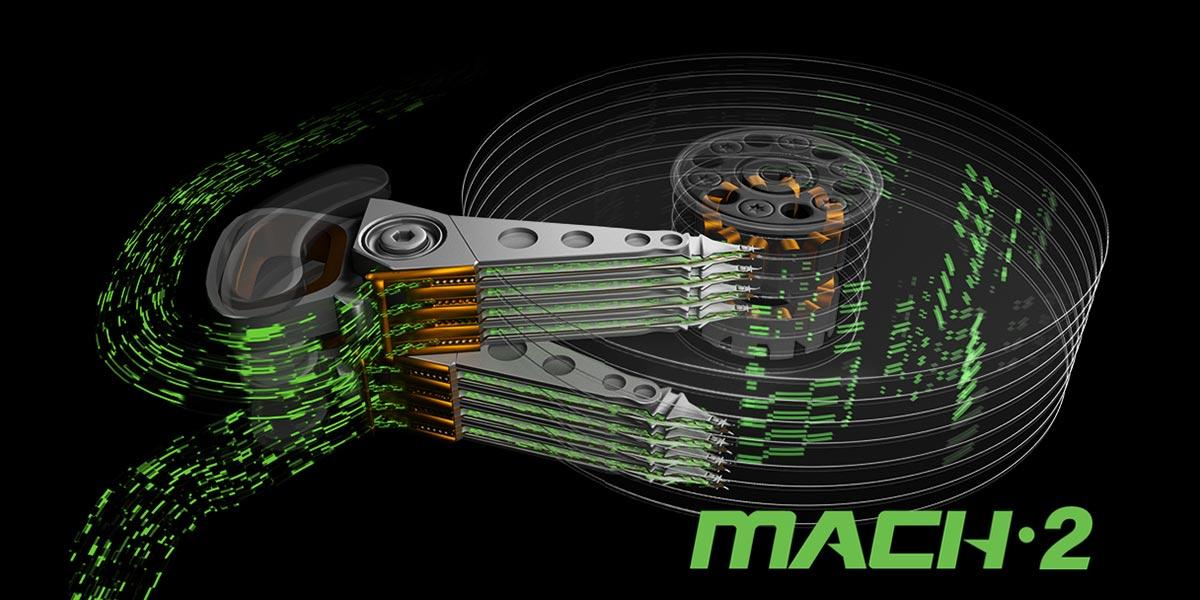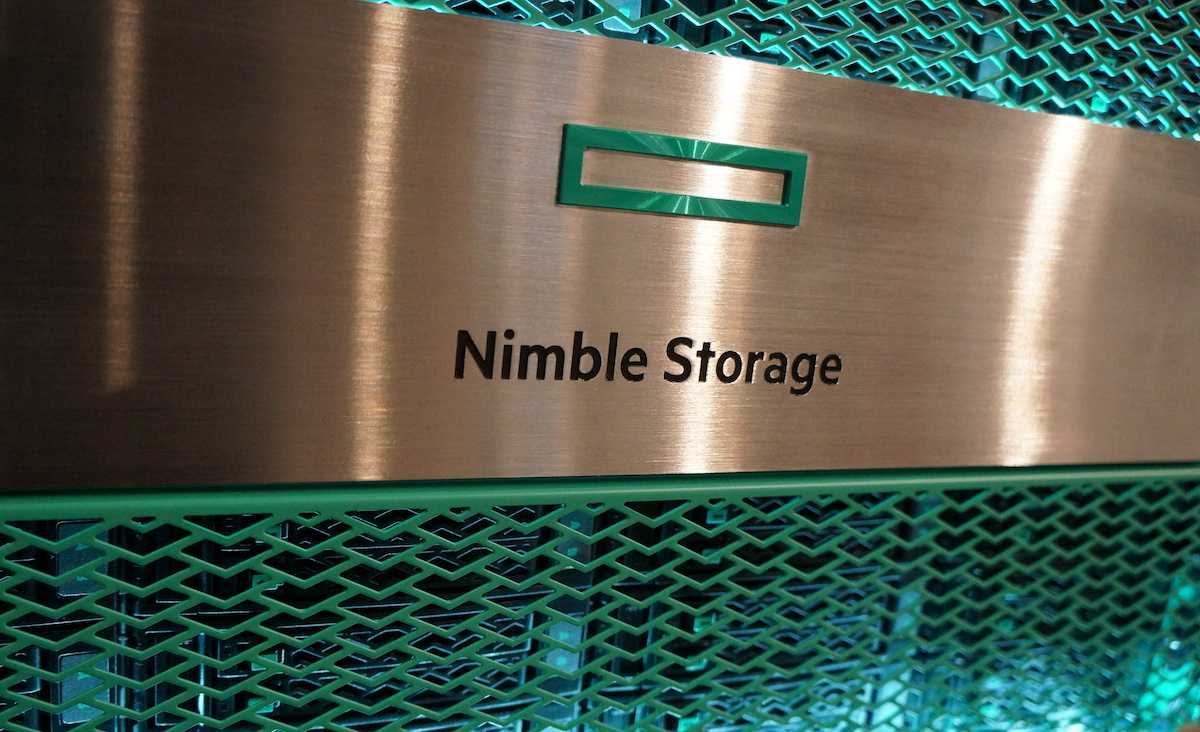This week, Chris and Martin look at the dual actuator drive technology developed by Seagate, also known as MACH.2. This conversation with Colin Presly and Tim Walker digs down into the detail of the hardware implementation and the operational aspects of deploying a hard drive that acts as two physically independent units. Dual actuator technology was developed to overcome the performance limitations of traditional hard drives. Over the years, drive capacities have increased almost exponentially, while performance has followed a linear track. MACH.2 divides the read/write heads of a traditional drive into two separate components, …
#159 – Introduction to MRAM with Joe O'Hare from Everspin
This week, Chris and Martin dig deeper into storage media and look at magneto-resistive RAM, commonly known as MRAM in this conversation with Joe O’Hare, Director of Distribution and Product Marketing at Everspin Technologies. MRAM is a persistent memory technology that uses resistance to determine the state of data. Everspin, the leading provider of MRAM technologies offers two product types – Toggle and Spin Transfer Torque. These two solutions provide different characteristics of endurance and scaling, but both offer low latency reads and writes at around 35 nanoseconds. MRAM is already finding uses in embedded …
#156 – Introduction to Hammerspace (sponsored)
In this episode, returning guest Douglas Fallstrom from Hammerspace takes Chris and Martin through the details of the Hammerspace global file system platform. The solution is software-defined, running either on virtual machines or in the public cloud. Customers can choose to leave data on existing hardware platforms and simply abstract the data into the Hammerspace platform, or use block storage to build out a distributed file system. The ability to abstract the physical placement of data from metadata allows customers to choose exactly how to manage their content. Traditional storage platforms have implemented data protection …
#153 – Post Pandemic Storage Efficiencies
As we head towards week 4 of lockdown in the UK, Chris and Martin reflect on the personal changes in their daily routines, as well as the implications on businesses. This has been a time for dusting off old skills (like DNS/DHCP configurations) and finding new uses for Raspberry Pis and Arduinos. Working from home has placed significant focus on Zoom, where the attack vector for “zoombombing” has resulted in some organisations (like schools) temporarily moving away from the platform. We’re seeing the inevitability of short-term scaling, for Zoom and Microsoft with Teams. Are cloud …
#150 – Myriad File Systems
File systems provide structure and a way to store data on computer systems. From the early days of FAT and NTFS, we now see a proliferation of file systems in the enterprise. Why do we have so many and what benefits do they offer?
#148 – Unpacking HPE's Storage Strategy
As reported by Chris Mellor, HPE recently announced Q1 2020 figures that show storage down 8% and servers down 15%. In light of these numbers, we look at HPE’s storage products, partners and overall strategy in the market. HPE primary products are strong contenders, with XP8 for high-end/mainframe, 3PAR & Primera, Nimble and MSA. Outside of the main platforms, HPE has some data protection hardware and of course, tape. To meet file and object storage needs, HPE partners with the likes of Qumulo, Scality, Weka and others. But finding details on these companies is hard. …
#147 – Introduction to Key Value Stores and Redis
This week, Chris and Martin look at Key-Value stores and in particular, Redis, with Kyle Davis, Head of Developer Advocacy at Redis (formerly Redis Labs). Key Value stores are at first glance a lightweight way to store structured data. As it turns out, the implementation of Redis includes significantly more features and functionality as well as multiple complex data types. Redis runs in-memory and is typically used accelerate traditional databases or store state for web-based applications. The ability to store and retrieve data from memory enables fast response times for features like shopping carts or …
#144 – Introduction to Storage as a Service
This week, Chris and Martin chat to Gary Breder (Director of Cloud and Services Product Marketing) and Diane Clay (Sr Manager of Cloud and Services Product Marketing) from Hitachi Vantara about storage as a service. While we’ve had different consumption models in the past, does StaaS offer anything different? Perhaps the key takeaway from this conversation is the use of service-based offerings as a way to financially engineer more attractive cost structures to businesses. The vendor shoulders the risk with the customer by putting resources on the floor with an expectation of usage at some …
#143 – Storage Adoption Myths & Realities
This week, Chris and Martin chat to Paul Stringfellow, CTO at Gardner Systems, about the realities of technology adoption. We hear lots of talk about Kubernetes, HCI, all-flash and even SCM technologies. But are all organisations deploying these technologies from day one? In reality, businesses deploy technology in a timeline that matches a normal distribution curve. As detailed in “Crossing the Chasm” by Geoffrey Moore, there’s a gap between early adopters and the mainstream IT organisations. What causes this inertia? Some of the challenges relate people and process, however there’s also a desire to implement …
#140 – Introduction to Document-Orientated Databases
This week, Chris and Martin speak to David Koppe, Director of Information Strategy at MongoDB. The discussion covers document-orientated databases, or simply document databases, and their appeal to the enterprise. Document databases differ from traditional relational databases in that the data is stored within each “document” as a series of key-value pairs. In this instance a document is not to be confused with a Word or PDF file. Unlike relational databases, document records don’t have to be “symmetrical” and aren’t required to contain every field (or a null value for empty fields). This makes the …










